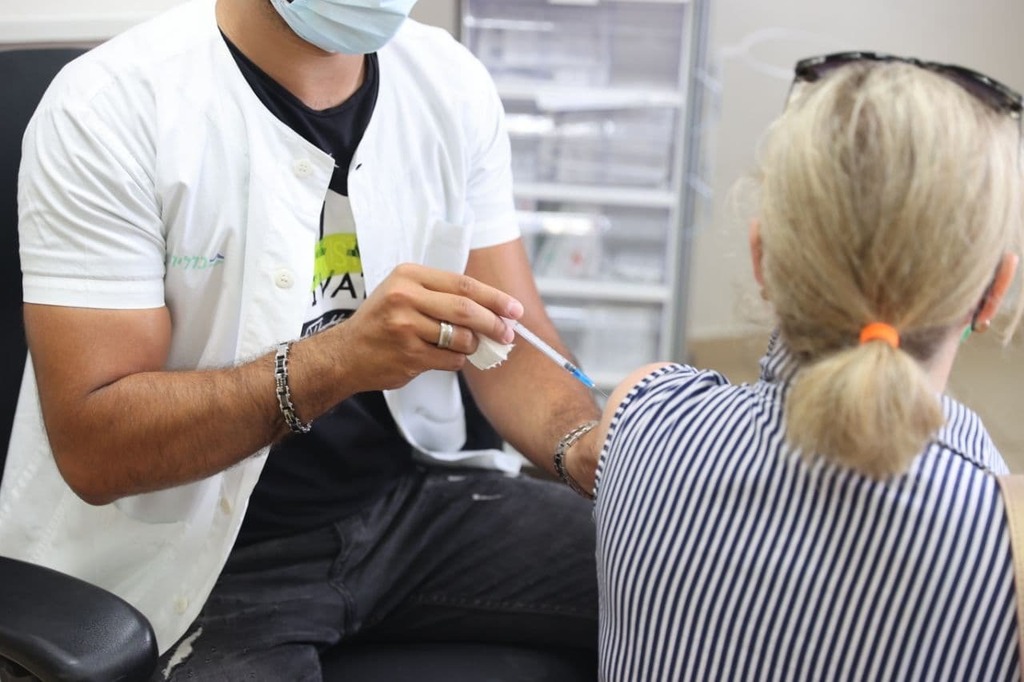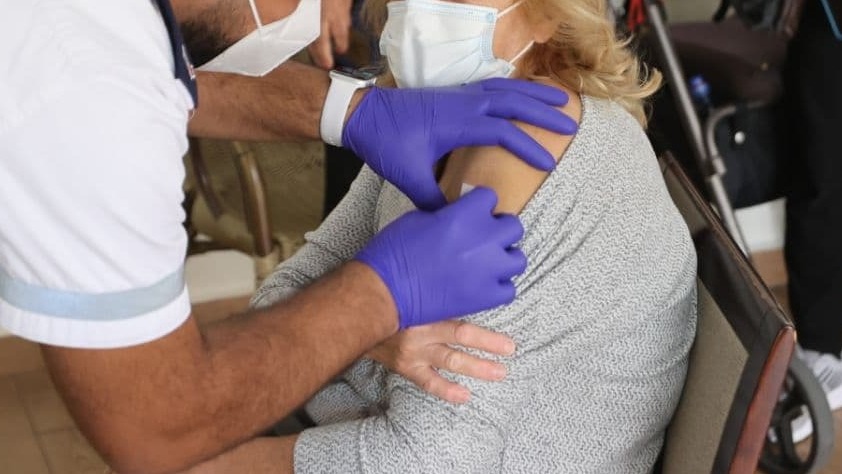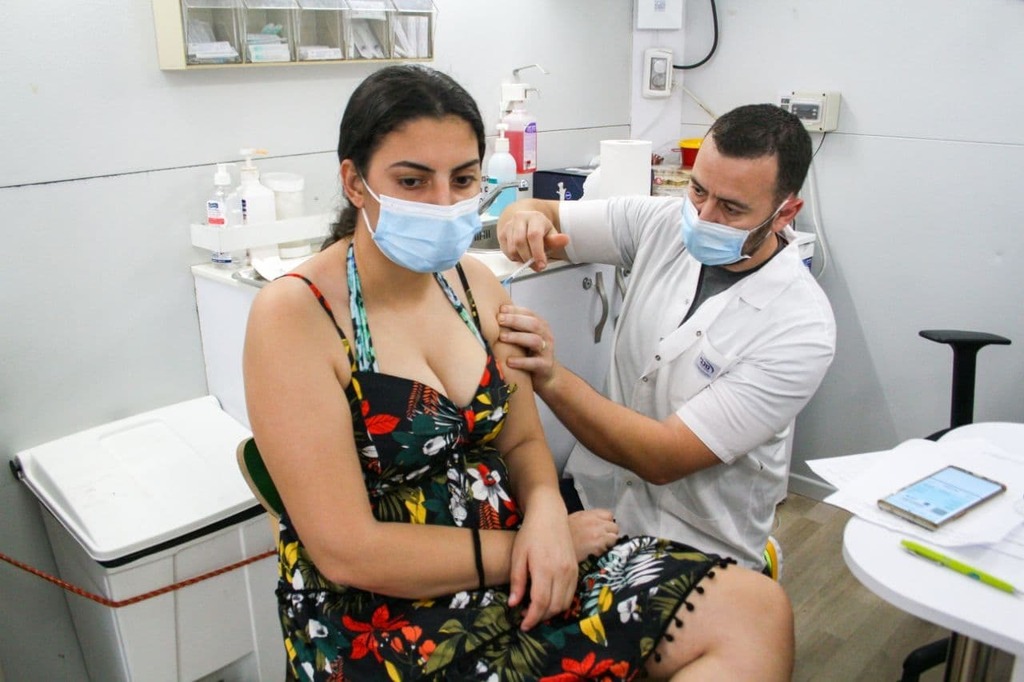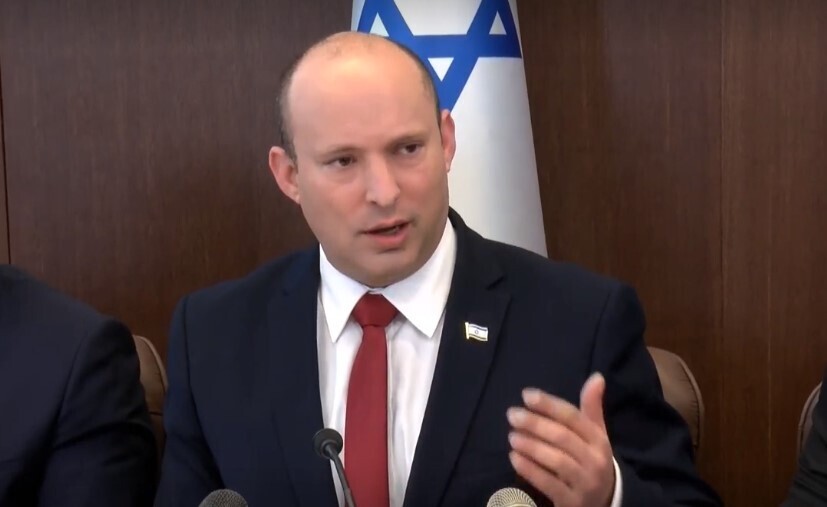Israel said on Sunday it will begin offering a booster shot of Pfizer Inc's vaccine to adults with weak immune systems but it was still weighing whether a third round of shots should be given to the general public.
The rapid spread of the Delta variant has sent vaccination rates in Israel back up as new infections have risen over the past month from single digits to around 450 a day, and the country has moved to fast-track its next Pfizer shipment.
4 View gallery


Health worker administers a COVID-19 vaccine to a woman in Tel Aviv
(Photo: Moti Kimchi)
Health Minister Nitzan Horowitz said that effective immediately, adults with impaired immune systems who had received two doses of the Pfizer vaccine could get a booster shot, with a decision pending on wider distribution.
Pfizer and partner BioNTech SE, the main suppliers in a swift Israeli vaccination rollout that began in December, said on Thursday they will ask U.S. and European regulators within weeks to authorize booster shots.
The two companies cited an increased risk of infection after six months in seeking permission for a third shot.
Drawing criticism from some scientists and officials, the companies did not share the data showing that risk, but said it would soon be made public.
4 View gallery


Health worker administers a COVID-19 vaccine to an elderly woman at a nursing home in central Israel
(Photo: Moti Kimchi)
"We are examining this issue and we still do not have a final answer," Horowitz, speaking on Kan public radio, said about a booster for the general population in Israel.
"In any case, we are administering as of now a third shot to people suffering from immunodeficiency. These are, for instance, people who have undergone organ transplants or suffer from a medical condition which causes a drop in immunity."
About half of the 46 patients presently hospitalized in Israel in severe condition are vaccinated, according to health ministry data. Israel's coronavirus pandemic response coordinator, Nachman Ash, said on Wednesday the overwhelming majority of them are from risk groups, over the age of 60 and have prior health problems.
Horowitz said that separately, the health ministry would plug a Pfizer supply gap for ongoing two-dose inoculations of the general adult population by using Moderna Inc vaccines already in stock.
Prime Minister Naftali Bennett said in broadcast remarks to his cabinet on Sunday that he has agreed with Pfizer to bring forward the next delivery of doses to Aug 1. The shipment had been widely expected to arrive in September.
There was no immediate response from Pfizer to a request for comment.
Israel hopes earlier deliveries will enable more youngsters to be vaccinated before the start of the school year in September.
Under health ministry regulations, Israeli youths can receive Pfizer shots but not yet those produced by Moderna.
Israel has almost exclusively administered Pfizer shots to around 60% of its 9.3 million population. But a batch of 700,000 doses due to expire at the end of July was sent to South Korea, as a recent slowdown in the pace of vaccinations would likely have seen the doses go to waste.
4 View gallery


Teenage girl receives a COVID-19 vaccine at a pop-up clinic in Haifa
(Photo: Ido Erez)
Under the swap deal, Seoul will return the same number of shots, already on order from Pfizer, in September and October.
"We have Moderna vaccines and adults who want to vaccinate can do so from this morning, or maybe tomorrow, with the Moderna vaccines," Horowitz said.
Bennett also announced that the government was looking into regulating mass events to prevent mass coronavirus infection events.


